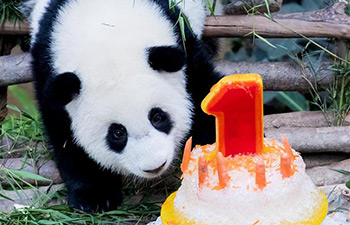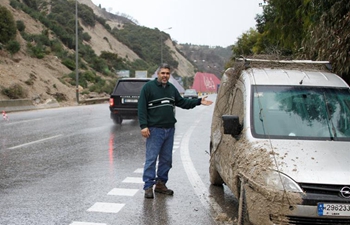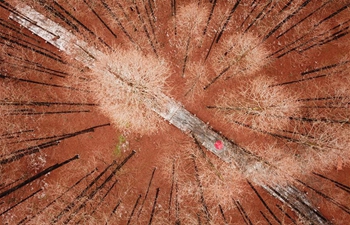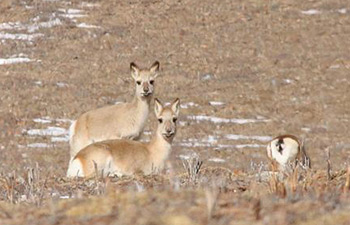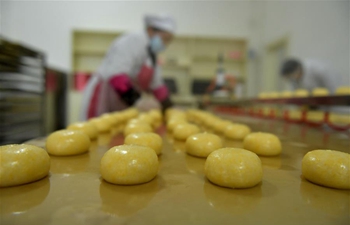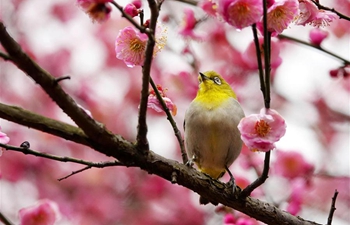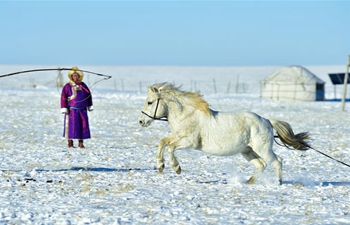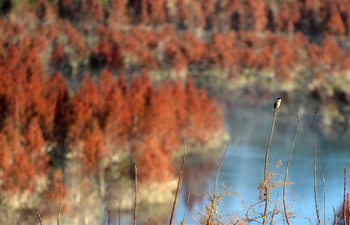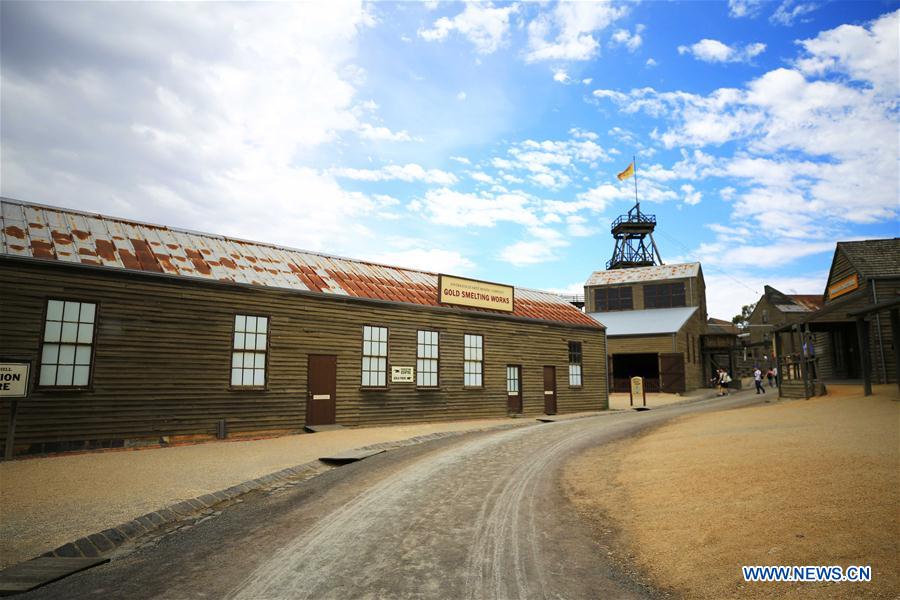 ?
?File photo taken on Dec. 27, 2018 shows a gold smelting workshop in Ballarat, Australia. The year 2018 marks the 200th anniversary of Chinese migration to Australia. China was in the late Qing Dynasty when many were thrilled by tidings of gold mine discovery in Australia. Ballarat was called the "New Gold Mountain" and some Chinese travelled there, hoping that their lives could be changed by gold. In 2018 the number of visitors to the attraction exceeded 700,000, including more than 50,000 visitors from China. (Xinhua/Pan Xiangyue)
by Bai Xu, Zhou Zihan, Pan Xiangyue
BALLARAT, Australia, Jan. 14 (Xinhua) -- When Steven Cody poured the gold into mould to make a golden bar amid admiration of Chinese tourists, he might feel for a moment the environment of his great great grandfather's time.
Cody, 52, is a performer at Sovereign Hill, an open-air museum in Ballarat of Australia depicting the first 10 years after the discovery of gold there in 1951. In 2018 the number of visitors to the attraction exceeded 700,000, including more than 50,000 visitors from China.
More than a century ago, Sovereign Hill also attracted people from all over the world, including China.
Cody's great great grandfather went to Ballarat from Ireland in 1851 at the age of 21. "He would have seen how the Chinese worked," he said.
Last year marks the 200th anniversary of Chinese migration to Australia. China was in the late Qing Dynasty when many were thrilled by tidings of gold mine discovery in Australia. Ballarat was called the "New Gold Mountain" and some Chinese travelled there, hoping that their lives could be changed by gold.
"In Ballarat there were about 200 gold mines like the Sovereign Hill," said Liu Yilin, who works for marketing and communications at the Sovereign Hill Museums Association. "In its best time there were as many as 40,000 miners, among whom a quarter were from China."
Some tents of the Chinese miners were shown at the site, with two beds in each, along with some daily necessities including the lamp and bowls. Some Chinese miners also brought the memorial tablets of their ancestors. Most of the Chinese were from Guangdong province who also built a temple.
At that time, there were three ways acquiring gold: panning in the river, digging wells and mining in the shaft. "Chinese miners were hard-working," Liu said. "In some wells abandoned by the European miners the Chinese could still find gold."
When productive Chinese miners achieved more gold, dispute between them and European miners erupted.
"Hence they were gathered in the 'Chinese village', which was guarded by 'protectors'," Liu explained. "The 'protectors' made sure that they would only go to work in limited time."
But later the relations between Chinese and European miners were changed.
"Some of the European miners contracted septicemia due to their dietary habit," Liu said. Chinese miners, to save living cost, grew vegetables on their own while they were not working. They sold the vegetables to European miners, from which the vitamin cured their septicemia."
In Cody's story, Chinese people were "always friendly." Even his parents remembered the Chinese market and gardens. "The Chinese would give more vegetables than they make money from," he said.
Some Chinese returned home after mining, while others remained, getting married and settling down like the great grandfather of Cody's brother-in-law. "His surname is Tong and he has got Chinese features. His great grandfather and his great great grandfather were from China. His grandfather was all Chinese. He married an English woman. My brother-in-law's father married an English woman as well."
Cody's father has many Chinese friends. He himself started learning Chinese last year. "We had Mandarin courses in Sovereign Hill," he said. "Now I know enough to get me through."
There are three Chinese guides explaining to the Chinese tourists while Cody poured the gold ingot valuing 160,000 Australian dollars (about 115,091 U.S. dollars). His job was to choose three tourists to touch the bar. But still the man looks to learn more Mandarin so as to communicate with Chinese visitors.
"The history is quite important," he said. "The Chinese people were treated badly, but they were lovely people."

